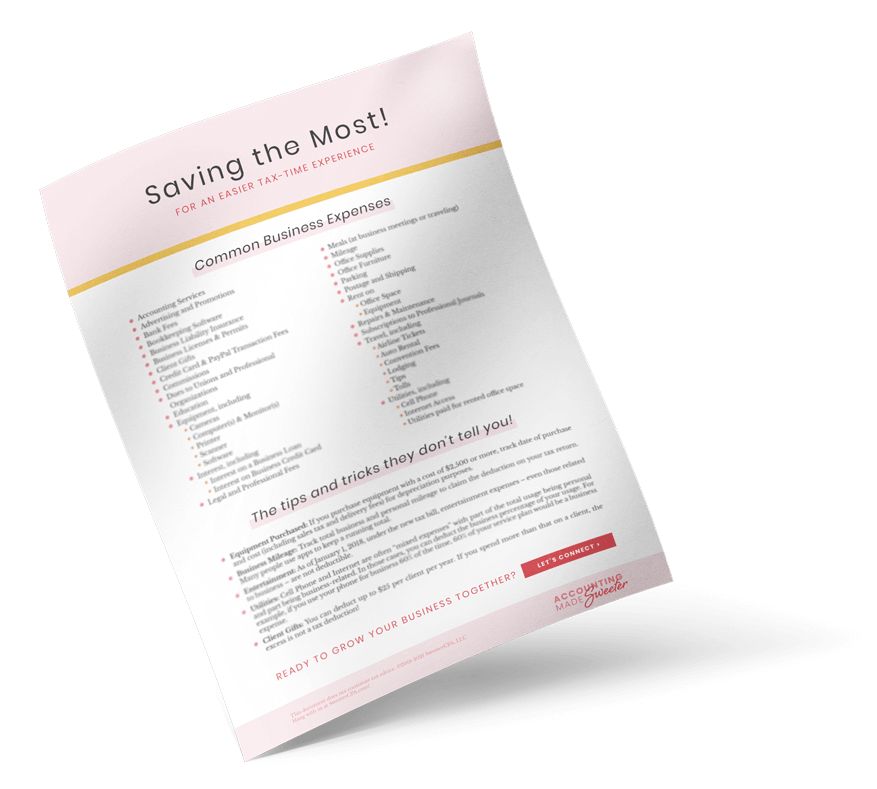Resources:
Why YOU Should Care:
If you pay fees in the course of maintaining your business, you must track them accurately in order to claim the expense and properly offset income.
What Counts as a Fee?
The most common types of fees incurred by small businesses fall into two categories: hosting fees and transaction fees. Hosting fees are those imposed on listing an item for sale online (such as the fees you pay to eBay, Etsy, Cargoh, Big Cartel, or any other online retail platform. Transaction fees are imposed when you transfer or collect money.
Transaction Fees include:
- Credit card fees
- PayPal fees
- Bank fees on money transfers
Example
Let’s say you perform services for someone and bill them $50 via PayPal. When you are paid, the amount you receive will be net a fee that PayPal imposes on business transactions. Rather than getting $50, you will receive a reduced amount. For the purposes of this example, let’s say you receive $48.25 – a fee of $1.75 has been deducted before the payment prior to you ever receiving money.
You’d record this in your accounting software as such:
- Mark the invoice of $50 as paid by the customer
- Record $48.25 of income
- Record a fee of $1.75
Without tracking this fee, you would be taxed on the total amount invoiced rather than the actual amount received.
You can record all transaction fees together in one expense category or create new sub-categories for each type of fee you incur (e.g., “Fees – PayPal” and “Fees – Etsy”). This will give you greater visibility to all the fees you pay throughout the year should you ever want to re-evaluate the systems you use to sell your goods and services (for example, if you want to evaluate switching from one online retail service to another).



